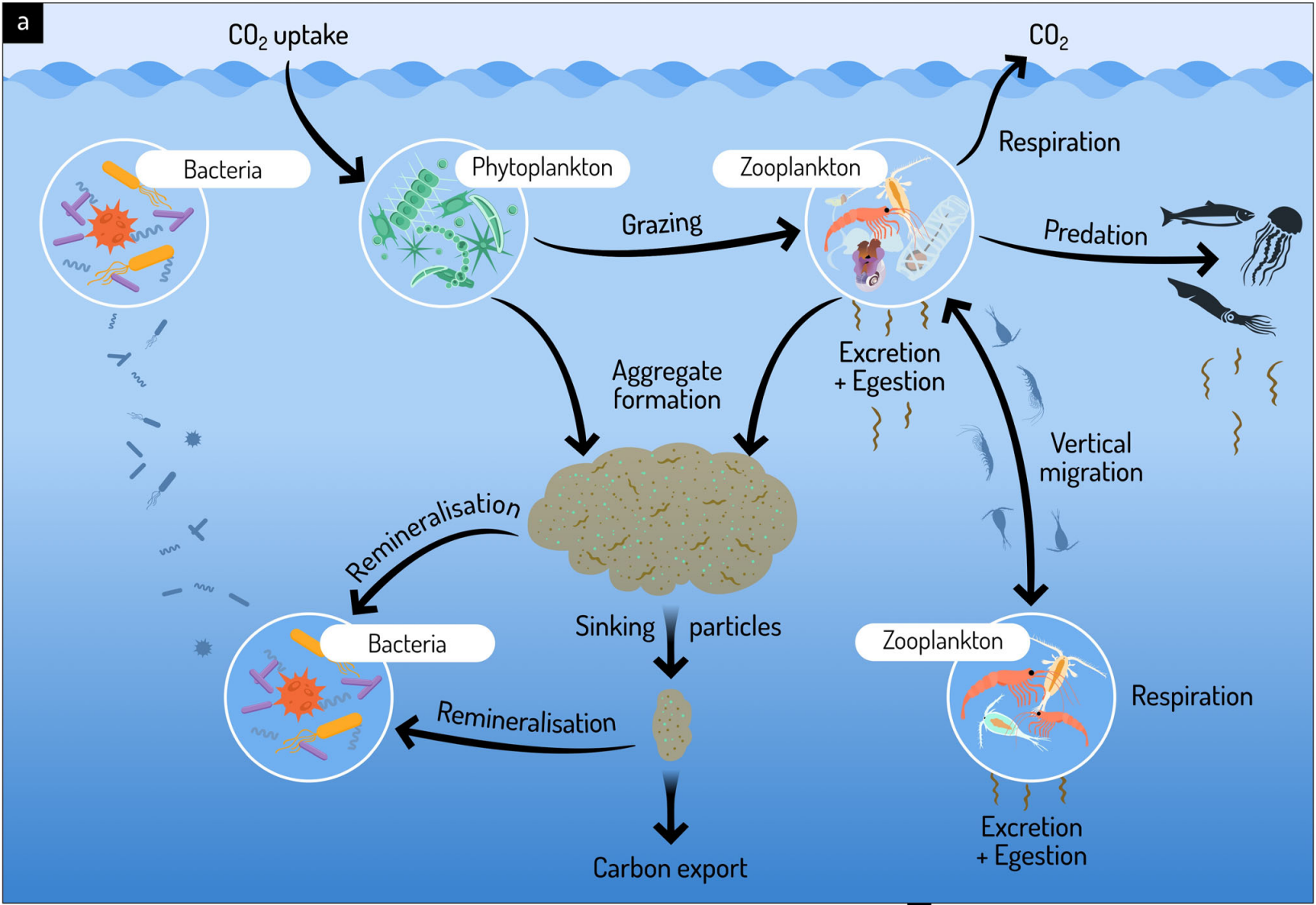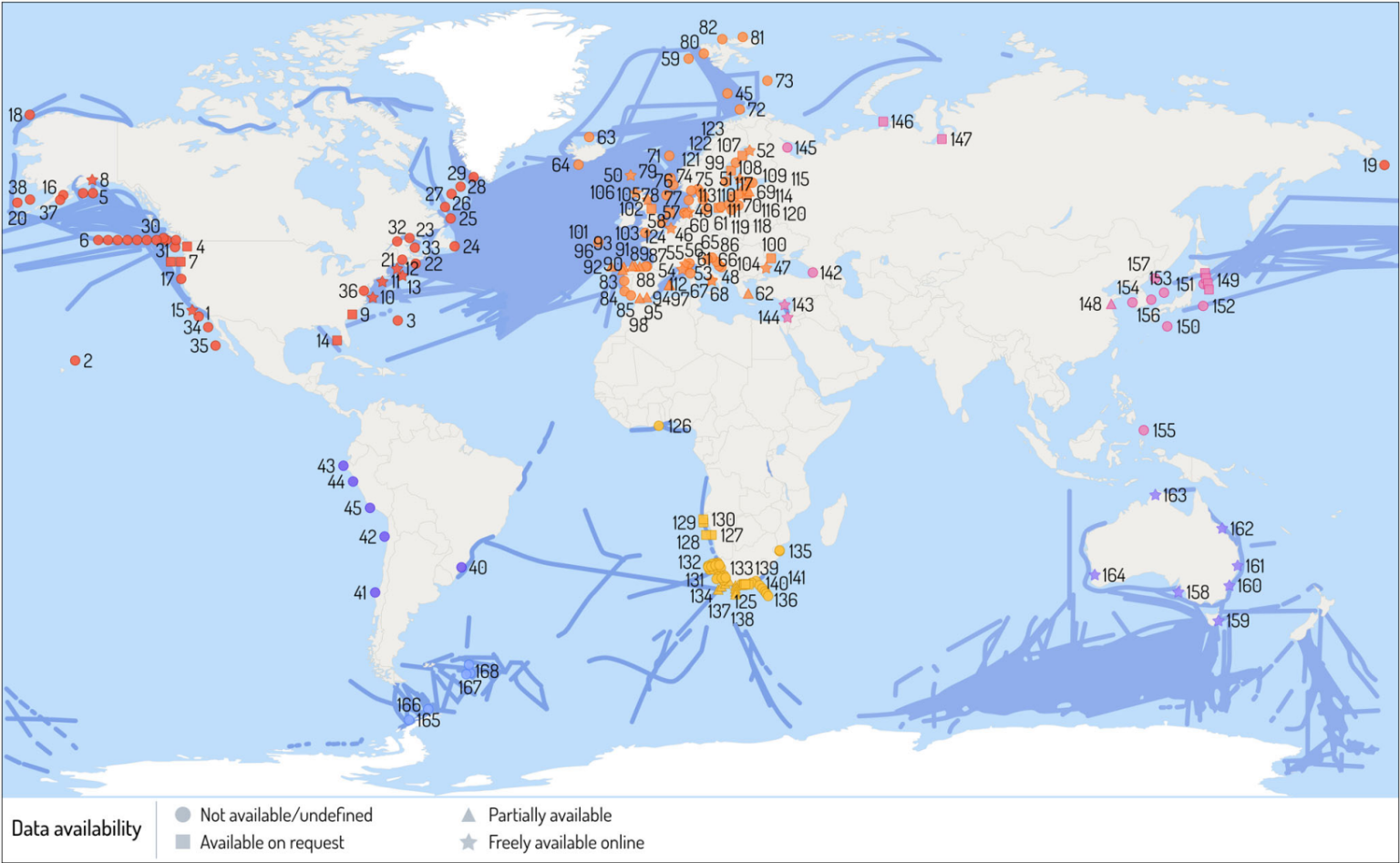Zooplankton are a crucial component of marine ecosystems and play a major role in transferring energy between primary producers and higher trophic levels, such as fish, seabirds, and marine mammals. They also influence oceanic biogeochemical cycles. However, despite decades of research into zooplankton ecology, distribution, and physiology, our understanding of how these tiny organisms will respond to changing ocean conditions remains limited.
A major review titled ‘Monitoring and modelling marine zooplankton in a changing climate’ was published in Nature Communications a couple of days ago by a team of authors from Australia, Canada, the United States, Malaysia, China, Brazil, and other European countries. EuroSea played a vital role in this study by providing crucial survey data of marine monitoring programmes within Europe.
Recent advancements in observational data have shown that zooplankton are indeed sensitive to changing ocean-climate conditions, with poleward shifts in distribution already observed by the 1960s. Yet, the majority of this research has been focused on the Northern Hemisphere, leading to inconsistent patterns and a lack of attention to the potential impacts of ocean warming on zooplankton populations.
In this review, the authors outline the recent and projected changes in global and regional climatic conditions that can impact zooplankton and explore how changes in these organisms are likely to impact ecosystem functioning at local and regional scales. They also discuss the limitations of current zooplankton monitoring programs and highlight the need for an integrated approach to zooplankton research that links to global needs.
With a focus on the most widely studied groups of zooplankton, including copepods, ichthyoplankton, euphausiids, and salps, the authors aim to provide a comprehensive global review of the status of zooplankton populations. These groups are of particular ecological and biogeochemical significance, providing ecosystem services such as nutrient recycling and carbon sequestration, as well as supporting fish stocks and fisheries.
In conclusion, the review emphasizes that zooplankton play a critical role in marine ecosystems and understanding their response to changing ocean conditions is crucial for predicting the impacts of ocean warming on the world’s oceans. An integrated approach to zooplankton research is needed to fill existing knowledge gaps and improve our ability to monitor and predict future scenarios.
For the entire review article please follow the link: https://www.nature.com/articles/s41467-023-36241-5



